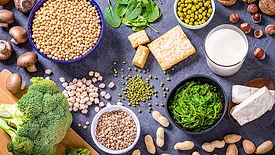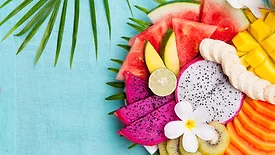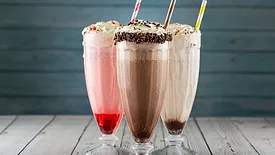Ingredient Spotlight
Beverage-makers turn to botanicals, adaptogens to deliver clean label, functional preferences
Read More
Fruit blends appeal to consumers for flavor, health factors
Beverage-makers aim to deliver innovative flavor blends
July 22, 2024
Functional beverages place greater need for masking ingredients
Sugar reduction trends prompt innovative solutions
June 25, 2024
Ingredient Spotlight: Hydrocolloids
Hydrocolloids offer multitude of beverage benefits
Ingredient appeals to beverage-makers looking to meet functional, sugar-reduction trends
May 16, 2024
Ingredient Spotlight
Beverage-makers work to deliver stress relief, relaxation benefits
Post-pandemic, consumers opt for beverages that aid in well-being
April 22, 2024
Health, sustainability trends put plant proteins in the limelight
Consumer trends continue to drive beverage innovation
March 20, 2024
Organic, functional demands driving future for coffee ingredients
At-home consumption, alternative additives open doors for coffee
February 19, 2024
Ingredient Spotlight
Exotic fruits offer functional appeal to beverage-makers
Consumer demand for unique, exciting drinks bring exotic fruits to the forefront
January 30, 2024
Ingredient Spotlight
Classic flavors provide reliable, consistent results for beverage-makers
Consumers enjoy tastiness, nostalgia of chocolate, vanilla and strawberry
December 26, 2023
Ingredient Spotlight
No surprise, tea market is hot
Health halo bolsters tea’s popularity
November 30, 2023
Elevate your expertise in the beverage marketplace with unparalleled insights and connections.
Join thousands of beverage professionals today. Shouldn’t you know what they know?
JOIN NOW!Copyright ©2026. All Rights Reserved BNP Media.
Design, CMS, Hosting & Web Development :: ePublishing












